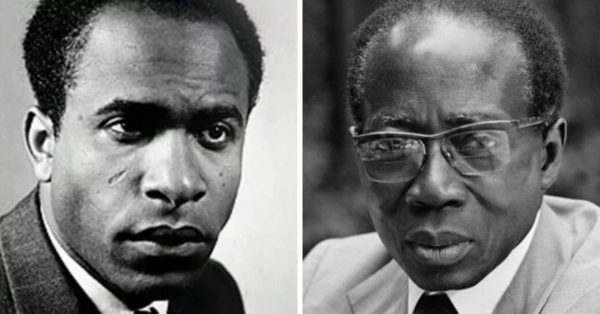
Leopold Sedar Senghor and Frantz Fanon were giants of postcolonial discourse. Senghor was Senegalese; he made his name as a poet and a leader of the Negritude movement and eventually became his country’s president. Fanon was Martinican, born in the French West Indian colony of Martinique, and became an influential psychiatrist and towering author in political philosophy. In Fanon’s canonical 1961 book The Wretched of the Earth, he threw shade at Senghor:
To quote the biting words of Senegalese patriots on the maneuvers of their president, Senghor: “We asked for the Africanization of the top jobs and all Senghor does is Africanize the Europeans.”
And:
‘Negro-African’ culture grows deeper through the people’s struggle, and not through songs, poems, or folklore.
In a new essay in Africa Is a Country, titled “A Letter Unanswered,” Katie Kilroy-Marac, assistant professor of anthropology at the University of Toronto, offers a context: in 1953, Fanon wrote to Senghor asking for a job in the Senegalese capital Dakar, and got no reply. The letter, Kilroy-Marac makes clear, may not be real in fact: references have been made to it by scholars but none has provided evidence of its existence. But Kilroy-Marac speculates about it in her 2019 book An Impossible Inheritance: Postcolonial Psychiatry and the Work of Memory in a West African Clinic, pondering what might have been of postcolonial psychiatry in Senegal had Senghor replied Fanon.
Read the essay in Africa Is a Country.









COMMENTS -
Reader Interactions